ERP (enterprise resource planning) software is helpful for all businesses, but some industries can derive more significant benefits than others.
An ERP can be a total game changer for pharmaceutical manufacturers because of how essential precision is to developing and manufacturing medication. The right ERP system can help in managing complex tasks in the pharmaceutical manufacturing process.
These tasks include research and development, production, marketing, sales, distribution, and logistics. In addition, these solutions can automate much of the busy work and coordination that manufacturing involves.
This article will give an overview of what an ERP can bring to your business and what features you need to look for to get the most out of your solution.
General Overview of Manufacturing ERPs
An ERP is a software system that integrates the different departments in a company. An ERP system is an integrated computer software package that includes applications for managing an organization’s data and operations.
In many cases, an ERP system will have modules for finance and accounting, manufacturing, human resources, materials management, product lifecycle management, customer relationship management (CRM), supply chain management (SCM), etc.
This type of software can be used to improve the manufacturing process by helping with the following:
- Inventory management
- Production planning and scheduling
- Material requirements planning
- Management of resources and assets, and
- Providing information on production processes
ERPs deliver visibility into the production process so that companies can better plan for production. It can also be used to optimize the production process and ensure it is as efficient and cost-effective as possible.
Since manufacturing involves many moving parts and systems, having a centralized system with all the information at your and your employees’ fingertips can be a game changer.
Why Pharmaceutical Manufacturers Should Embrace ERPs
Making the switch to an ERP is daunting, and it’s natural to be on the fence about which one to choose. Implementing ERP is a significant project; it can take time to adjust and fine-tune the system.
But despite the lengthy implementation process, an ERP is almost always worth it in the long run. And that’s particularly true for manufacturers of high-precision goods, like pharmaceuticals.
ERP systems are a vital tool for pharmaceutical manufacturers. They help manage, track and control the flow of materials, information, and other resources. In addition, an ERP can be used to enhance safety by reducing human errors and improving compliance, improve efficiencies by automating repetitive tasks, and reduce costs by optimizing inventory, production, and logistics
6 Benefits of ERPs for Pharmaceutical Manufacturing
The benefits of ERPs are numerous, but there are six key benefits that pharmaceutical manufacturers should be aware of.
- Automated data and process management: ERPs are designed to automate data and process management, which helps reduce costs and increase efficiency.
- Improved customer service: The integrated modules within an ERP can provide companies with tools to improve customer service by tracking orders in real-time, monitoring inventories more closely, and ensuring that orders are processed quickly and accurately.
- Enhanced collaboration: ERPs provide a central location where employees can communicate with one another about their tasks by sharing files or messages through the system’s chat function or email tool.
- Increased operational visibility: With an ERP, companies have more visibility into their production process and overall operations. This makes it simple to identify bottlenecks that might be slowing production.
- Improved quality control: ERP systems provide companies with a means of controlling quality by checking and maintaining records on the production process. This is especially helpful in industries that rely on complex manufacturing processes, such as aerospace, automotive, and, of course, pharmaceuticals.
- Improved workforce efficiency: ERP systems are invaluable in streamlining the workforce by coordinating schedules more efficiently and determining which employees can work overtime.
An ERP system can also help enhance the quality of drugs by maintaining safety standards. You can create a database for inventory management that is automatically updated with new information on a timely basis.
All in all, the stakes are too high for pharmaceutical companies to rely on competing systems with less information and fewer check and balances.
What To Look for in a Pharmaceutical ERP
First of all, make sure you choose an ERP that is well-reviewed. It has to be reliable and accurate to meet the requirements of the regulatory authorities. You also need a system that can handle all aspects of production, from raw material sourcing and supply chain management to inventory control and quality assurance.
Some features to look for in a good ERP include the following:
- Ease of use
- Customizable
- Flexible
- Quality training
- Data security
Beyond these requirements, you should also explore ERPs with built-in solutions for pharmaceutical manufacturers. Again, these will be oriented toward solving your industry-specific needs.
However, if you’re unhappy with the prefabricated solutions, another option is to look at manufacturing ERPs in general.
As long as you choose a flexible ERP that allows for modification, such as Odoo’s manufacturing solution, you can create a more bespoke ERP. However, using an ERP without basic manufacturing capabilities is not recommended since that would be a more extensive project than is necessary.
Yes, You Should Use an ERP
When you’re in the business of saving lives, precision, efficiency, and compliance have to be your top priority. Trying to juggle different systems can be overwhelming and lead to careless errors. The most efficient way pharmaceutical manufacturers manage their production, inventory, and distribution is through ERPs.
There are many ERPs that offer third-party integrations as well, such as Acumatica Cloud ERP. Acumatica ERP is a one stop solution for all your business management needs. These allow you to pick and choose from an extensive library of modules, many of which were created by people facing the same issues. This can act as an alternative to programming your own system.
Acumatica Pricing, Demo, and Implementation
As a certified Acumatica Partner, Confianz employs a team of Acumatica implementation experts. Our budget-friendly price structure keeps Acumatica within reach for most SMBs. We partner with businesses across the United States to effectively implement Acumatica using customized features.
However, choosing, implementing, and customizing an ERP can be a lot to take on. That’s why Confianz partners with manufacturers trying to make the switch. Our team of experts can help you every step of the way. All you have to do is call us today!
Register for free Acumatica Demo Now!







